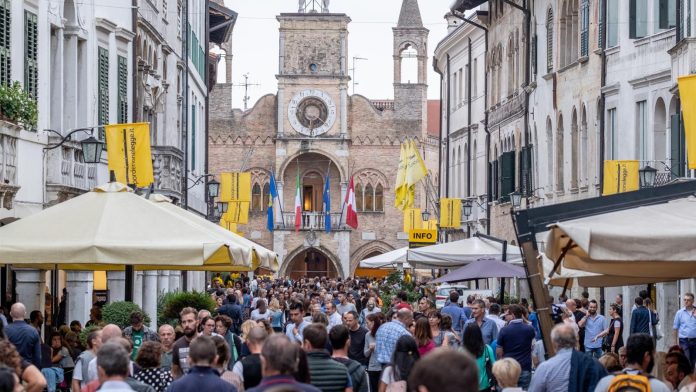by InTrieste
Officials from Pordenone, a city in our Friuli Venezia Giulia region, presented their bid to become the Italian Capital of Culture for 2027 during a hearing at the Ministry of Culture in Rome on Tuesday. The initiative aims to highlight Pordenone’s cultural heritage and expand its presence on both the national and international stage.
Regional governor Massimiliano Fedriga, addressing the hearing via video link, emphasized the collective effort behind the city’s candidacy. “Pordenone is not just a municipality submitting an application; it is a community moving together to showcase its unique characteristics,” he said. “If this opportunity is recognized, it will be a significant milestone for the region and the country, one that we will work to promote internationally.”
The presentation was attended by interim Mayor Alberto Parigi and Friuli Venezia Giulia Vice President Mario Anzil, who underscored the city’s strong cultural identity and its potential for broader recognition.
Pordenone is home to several well-established cultural events, including Pordenonelegge, an annual literary festival, the Silent Film Festival (Giornate del Cinema Muto), and a thriving comic book scene. Fedriga noted that these initiatives already contribute to the region’s international profile and would be further supported by Friuli Venezia Giulia’s participation in the Italy Pavilion at the 2025 Expo in Osaka, Japan.
The regional president also positioned culture as an engine for economic development, stating that in 2027 the region plans to host the National Fair of Culture and Creativity in Pordenone. The event would focus on creative industries and their role in fostering innovation and economic growth.
Fedriga cited previous regional experience in large-scale cultural initiatives, particularly with Nova Gorica and Gorizia, which will serve as the European Capital of Culture in 2025. He expressed confidence that the same collaborative approach could be applied to Pordenone’s bid. If successful, he added, the city’s designation as Capital of Culture would be promoted through international embassies and a structured long-term campaign.
Among the cultural projects associated with the bid, Fedriga highlighted the ONU 17 initiative, which features 17 art installations dedicated to the United Nations’ Sustainable Development Goals. The installations, created by internationally recognized artists, would be hosted across the region, with Pordenone playing a key role in the project’s implementation.
Vice President Anzil praised the city’s application process and noted its strong cultural vibrancy. “Pordenone already hosts significant cultural events that could benefit from further visibility,” he said. “Becoming the Italian Capital of Culture would offer an opportunity to elevate these initiatives and position the city more prominently on the national and international cultural map.”
The selection process for the Italian Capital of Culture 2027 is ongoing, with a final decision expected later this year.





























